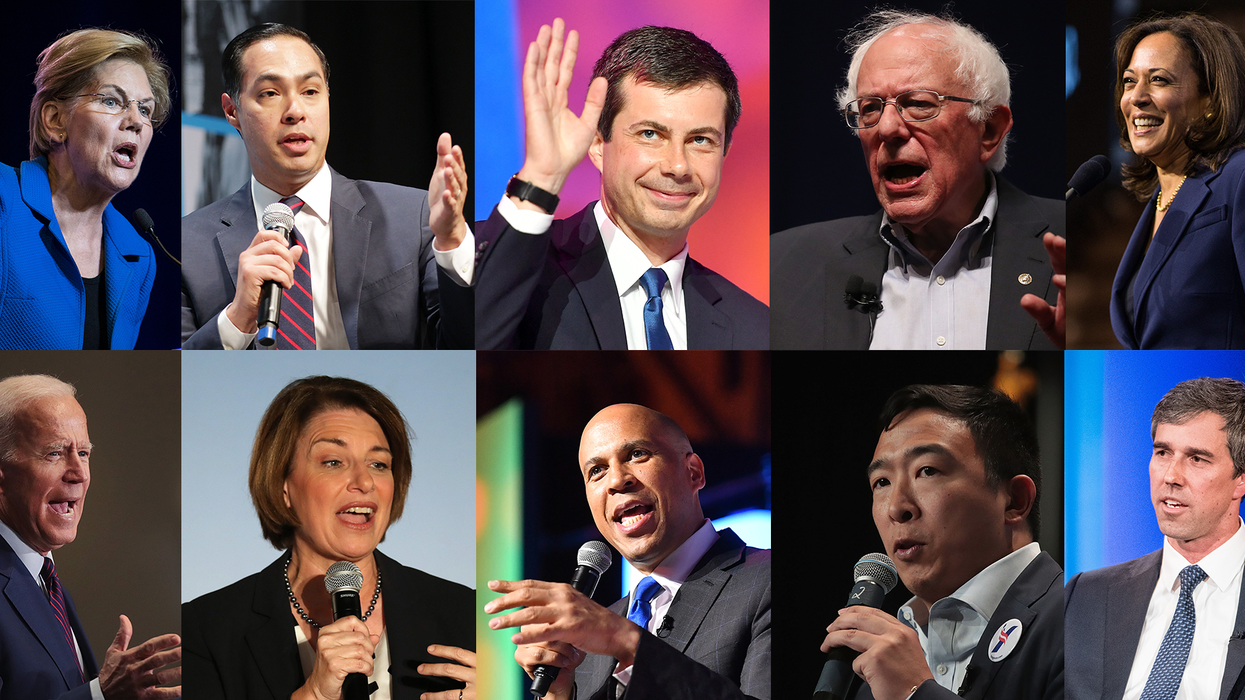Voters who consider democracy's dysfunction among the nation's most pressing challenges are hoping the Democratic candidates say more on the subject Thursday night than they have in the first two rounds of presidential debates.
Only the 10 leading candidates have been invited to spend three hours, starting at 8 p.m. Eastern, on the same stage at Texas Southern University in Houston – their encounter broadcast and co-hosted by ABC and Univision.
The table below signals where those candidates stand on 17 of the most prominent proposals for improving the way democracy works – in areas of campaign finance, access to the ballot box, voting rights, election security, political ethics and revamping our governing systems.
For a more detailed explanation of the positions of the White House aspirants, see this comprehensive story from July.
There's no counting on the moderators to ask about any of these ideas, but if they do this chart offers a quick guide on what to look for.
Our earlier package covers not only the top-tier candidates debating Thursday but also most of the rest of the remaining field. Three whose positions we detailed this summer have since dropped out: former Colorado Gov. John Hickenlooper, New York Sen. Kirsten Gillibrand and Washington Gov. Jay Inslee. The positions of one recent entrant in the race, billionaire Tom Steyer, will be on the chart in time for his debate debut next month.![]()




















